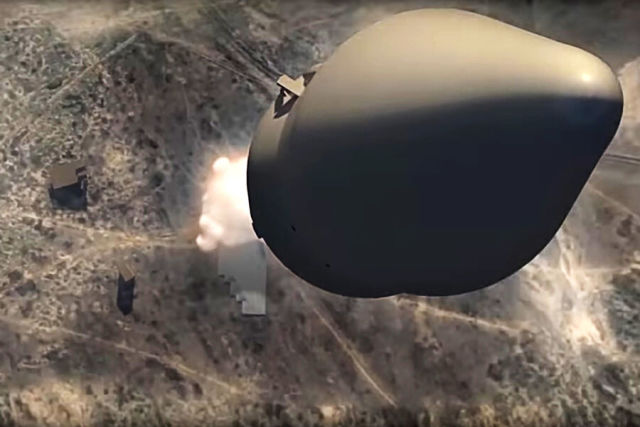Russia puts Avangard complexes into service The 13th missile Orenburg Red Banner Division is being handed over to the newest strategic mine-based complex "Avangard".
Newsweek considers this system to be Vladimir Putin's "invincible weapon." As the president himself explained four years ago, Avangard is "absolutely invulnerable to any means of air and missile defense." War correspondent of "Gazeta.En" Mikhail Khodarenok - about whether the West can resist Russian hypersonic.
The Avangard is a hypersonic gliding combat unit equipped with a special warhead (that is, nuclear ammunition). In some cases, it is also possible to install a conventional warhead.
The Avangard is accelerated to hypersonic speed by a liquid-fueled intercontinental ballistic missile of the mine-based ICBM UR-100N UTTH (according to the NATO classification - SS-19 Stiletto) with a firing range of more than 10 thousand km. In the future, the carrier of the Avangard product will be the newest ICBM of the RS-28 Sarmat heavy class.
After separation from the last stage of the UR-100N UTTH rocket, the planning combat unit performs an independent flight. The design and materials of the Avangard hull allow it to withstand temperatures up to 1600 degrees Celsius, and in some areas - up to 2000 degrees. At the same time, stable aerodynamic characteristics and the possibility of stable control over the entire flight path are preserved.
The planning combat unit has a hypersonic flight speed (according to some data, significantly higher than the M -25) and the ability to perform vigorous maneuvers along the course and altitude.
It is this maneuver that makes the Avangard system an invulnerable weapon against any missile defense system. The thing is that
the firing radar of the missile defense system, having detected the ICBM combat unit, ties the route by several serifs. The digital computing complex of the system extrapolates the flight path of the block, calculates the affected area and determines the meeting point and the launch time of the missile. And it is at this meeting point that the anti-missile rushes. That is, the entire work of the missile defense system (and especially the digital computing complex) is based on the hypothesis of rectilinear and uniform movement of the combat unit. By and large, in the case of repelling the impact of classic intercontinental ballistic missiles, this is what happens. Their combat units do not perform any maneuver at the final stage of the flight path.
And it is unlikely to be possible to build a missile defense system in another way. The fact is that the speeds of convergence of the anti-missile and the combat unit are so great that the determination of the moment of launch and the process of targeting the anti-missile must be automated as much as possible, that is, completely exclude the human operator from the combat cycle of the missile defense system. For this purpose, with the beginning of the combat cycle of the anti-missile complex, a special command is even issued that blocks all possible toggle switches and buttons. This is done so that the combat crew does not have the opportunity to interfere in the process of combat work. And in this case, the basis of the combat cycle must necessarily be based on the principle of rectilinear and uniform movement of the target.
But the maneuvers of the Vanguard's planning combat unit on the course and altitude put any missile defense system on the shoulder blades. And there are no antidotes to these features of the "Avant-Garde" yet. Whether the principle of kinetic interception and the infrared homing head on anti-missiles used in some American missile defense systems (for example, the THAAD type) will help out in this case is also not entirely obvious.
A similar principle is used in the US GMD missile defense system (Ground-Based Midcourse Defense, a ground-based missile defense system with interception on the marching section). In this missile defense, an Exoatmospheric kinetic interceptor of the EKV type (Exoatmospheric Kill Vehicle) is used. Again, with the energetic maneuvers of the Vanguard's planning combat unit, the failure of the EKV homing and the subsequent miss of the anti-missile is more than likely.
It was probably these considerations that gave Newsweek the right to consider the Avangard system "Vladimir Putin's invincible weapon."
Mikhail Khodarenok

